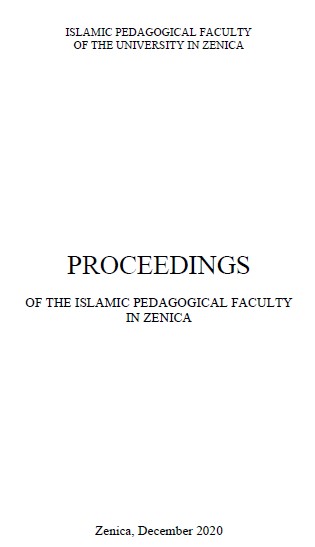RELIGIJA U TEORIJAMA KLASIČNIH SOCIOLOGA
RELIGION IN THE THEORIES OF CLASSICAL SOCIOLOGY
Author(s): Armin JašarevićSubject(s): Metaphysics, Comparative Studies of Religion, Marxism, Philosophy of Religion, Sociology of Religion, History of Religion
Published by: Islamski pedagoški fakultet Univerziteta u Zenici
Keywords: religion; sociology; Comte; Marx; Durkheim; Weber;
Summary/Abstract: As the science about society, from its very beginning, sociology has dealt with religion and its importance and function in a society. Social events and changes that have taken place in the area of Europe have contributed to bringing religion in the focus of many scholars, which shows that in the overall history of humankind it has been one of the unavoidable research topics. This research aimed at showing how classical sociologists (Comte, Marx, Durkheim and Weber) approached the phenomenon of religion. The stances of the aforementioned scholars are presented by the means of a method of theoretical analysis. The findings indicate that all scholars approach the phenomenon of religion differently. Thus, for instance Comte, as a founder of sociology, embodies a positivist discourse through which he promotes the universal theory of religion. Unlike his contemporaries, Durkheim, claims that religion is an unavoidable society factor and that it presents an essential condition for social integration. Contrary to Durkheim, Marx argues that religion is the alienation and opium of the ruling masses who use it to establish balance. Weber, adopting a systematic sociology approach to religion, analyses comparatively religious and social behavior, and claims that religion is a radical response to specific life situations.
Journal: Zbornik radova Islamskog pedagoškog fakulteta u Zenici
- Issue Year: 2020
- Issue No: 18
- Page Range: 307-326
- Page Count: 20
- Language: Bosnian

